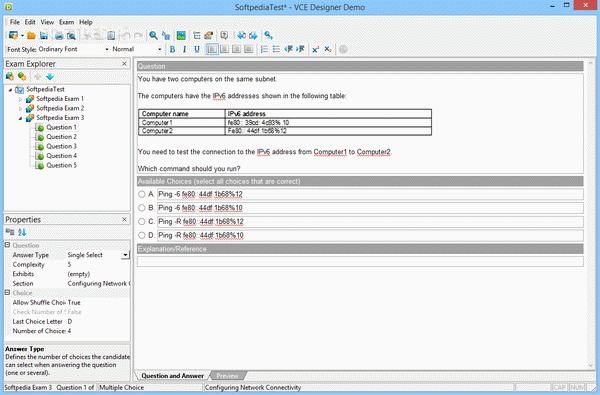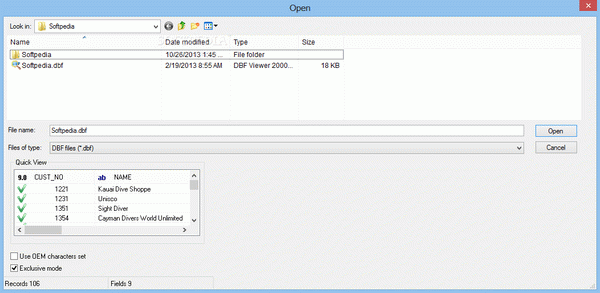What is a domain registrar?
When starting a website, one of the first things you need to do is register a domain name. A domain registrar (opens in new tab) is a company that helps you do this.
They act as a middleman between you and the Registry Operator, who controls the global database of domain names.
There are many different domain registrars, so it's important to choose one that meets your needs. This blog post will discuss the intricate details of domain registration and how to choose the right domain registrar for your website’s domain name.
What is a domain registrar?
A domain registrar is an organization that manages the registration of Internet domain names. A registrar must be accredited by a generic top-level domain (gTLD) registry and a country code top-level domain (ccTLD) registry.
Generic top-level domains (gTLDs) are one of the categories of top-level domains (TLDs) maintained by the Internet Assigned Numbers Authority (IANA) for use in the Domain Name System of the Internet.
The gTLDs include some of the most familiar domain suffixes on the Internet, such as .com, .info, and .net. IANA also oversees two other categories of TLDs: country code top-level domains (ccTLDs) and infrastructure top-level domain (ARPA).
The major difference between gTLDs and ccTLD registries is that gTLD registries are operated by private entities contracted by ICANN, while ccTLD registries are operated by national governments or Internet communities. For example, .uk is a ccTLD that is overseen by Nominet UK, while .io is a gTLD that is overseen by the British Indian Ocean Territory Government.
Registrars provide access to the WHOIS database for each domain name they register, including information about the domain name's owner and other contact details. Domain registrars are also responsible for maintaining accurate records of who owns each domain name and providing other services such as web hosting (opens in new tab) and email hosting (opens in new tab).
When you register a domain name, you are leasing it from the registrar for a specified period. You can renew your lease on a yearly basis, and as long as you keep renewing it, the domain name will remain yours. However, if you stop renewing your lease, the registrar can give your domain name to someone else.
How domain registrars work
Domain registrars are the companies that manage the reservation of Internet domain names. A domain name is an identification label that defines a realm of administrative autonomy, authority, or control within the Internet.
Domain registrars are responsible for maintaining the database of names registered within their TLD and delegating domains to Name Servers. When a domain name is entered into a web browser, domain name server (DNS (opens in new tab)) translates the name into an IP address and directs the browser to that computer.
Many different domain names are available today, from traditional .com domains to newer options like .io or .ly. Depending on your needs, you may want to register a specific type of domain, such as an emoji domain (opens in new tab), or multiple domains for your website.
How to find an available domain name and register it?
If you are wondering how to choose a domain name for your website (opens in new tab), firstly, you'll need to think of the name you want to register. You can use a domain name generator tool to help you generate ideas if you need inspiration. Once you have a few possible options, check to see if they're available using a Whois search tool. If the domains you want are already taken, try different variations or add prefixes or suffixes until you find an available one.
Once you've found an available domain, register it with a reputable domain registrar such as GoDaddy domain registration (opens in new tab) or Namecheap (opens in new tab). Be sure to set your registration to renew automatically, so you don't risk losing your domain in the future.
Now that you have your new domain, it's time to put it to good use. You can create a website (opens in new tab), start a blog, or even use it for email.
What to look for in a domain registrar
When you're ready to register a domain name, you should keep a few things in mind. Here are some factors to consider when choosing a domain registrar:
- Reliability: Can you count on the registrar to keep your site running? Uptime is essential, especially if you're running an ecommerce website (opens in new tab). Make sure to check out reviews of the registrar before making your decision.
- Customer service: Things will inevitably go wrong at some point. When they do, you'll want a registrar with excellent customer service that can help you resolve the issue quickly. Again, reading reviews can be helpful here.
- Top-level domains: Not all registrars offer the same top-level domains. If you have your heart set on a specific TLD, make sure the registrar you choose offers it.
- Features: Not all registrars are created equal in terms of features. Some include extras like website builders and security tools, while others keep it simple with just domain registration. Decide what features are important to you and choose accordingly.
- Domain transfer options: If you ever want to switch registrars, you'll need to transfer your domain. Some registrars make this process easy, while others make it quite difficult. If you think there's a chance you might want to switch in the future, be sure to choose a registrar with good transfer options.
- Provider reputation: You'll be trusting your registrar with a lot of important information, so choosing one with a good reputation is important. A quick Google search can tell a lot about a registrar's reputation.
- Pricing: Registrars vary widely in terms of pricing. Some offer discounts for bulk purchases, while others have tiered pricing structures based on your needed features. Make sure to compare pricing before making your decision.
What is private domain name registration?
Private domain name registration is a way to keep your contact information confidential when you register a domain name. During this process, your personal contact information is made available to anyone who wants to look up who owns the domain.
This can lead to unwanted solicitations or even identity theft. Private domain name registration keeps your information safe by hiding it from public view. Domain Privacy Services, LLC (DPS) often provides this service. DPS will replace your contact information with their own so that prying eyes cannot see who you are.
You can still be reached through the DPS website if someone needs to get in touch with you about your domain, but otherwise, your information remains protected. Private domain name registration is a crucial way to protect yourself online, and it is well worth the small investment.
What is the difference between a registrar and a registry?
The main difference between a registrar and a registry is that registrars are commercial entities such as GoDaddy, that sell domain names, while registries are organizations that manage the availability of domains. Registrars provide the interface through which people can search for and purchase domains, while registries are responsible for maintaining the master database of all domain names.
While there are many different registrars to choose from, there is usually only one registry for each top-level domain (TLD). For example, the .com TLD is managed by Verisign, while Nominet manages the .uk TLD. When you register a domain name, you will need to select both a registrar and a registry.
Domain name selection
Choosing a registrar for your website is an important decision. Before making your choice, research and compare pricing, features, customer service, and other factors.
Private domain name registration is also good if you want to keep your personal information safe.
Finally, remember that registrars are commercial entities that sell domains, while registries are organizations that manage the availability of domains.


